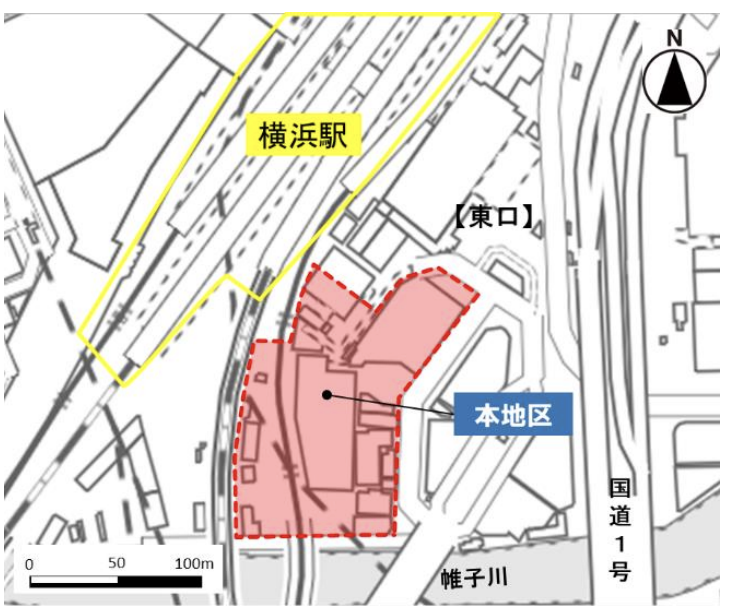Why are high-net-worth individuals attracted to real estate investment? There are a wide variety of reasons, including stable income gains, capital gains, and even tax savings. However, they place particular importance on "non-public information" that is never available in the general real estate market. This information plays a pivotal role in their asset building. In this article, INA&Associates provides a detailed explanation of how high net worth individuals obtain "non-public information" when selecting properties and how they utilize this information in their asset strategies, from an expert's perspective.
Why do the wealthy seek "non-public information"?
The reason why high-net-worth individuals seek "undisclosed information," especially "off-market" real estate information, is not just the desire to acquire rare and valuable properties. There exists a more sophisticated and strategic asset management perspective.
1. to avoid cutthroat competition and to get a deal on favorable terms
Since publicly available property information is exposed to the eyes of many investors through real estate portal sites, price competition can easily intensify. This is especially true for luxury real estate in prime locations in central Tokyo or popular areas. Private properties, on the other hand, are shared only within a limited network, so there is less competition and negotiations can proceed on more favorable terms. This increases the likelihood of acquiring prime income properties at fair or below-market prices.
2. to encounter rare properties with high asset value
There are good reasons for properties to be closed to the public. For example, the owner does not want to make the sale public, or the property is so rare and valuable that he or she wants to sell it only to a trusted party. In many cases, large lots in prime locations in central Tokyo or mansions with historical value are sold under the radar without being publicly disclosed, according to the owner's wishes. Such properties are expected to maintain and increase their stable asset values over the long term, making them attractive investment targets for high-net-worth individuals. 3.
3. to ensure privacy and transaction security
For high-net-worth individuals, privacy is extremely important. Real estate transactions involve large sums of money, and leaking that information to the outside world can lead to security risks. Non-public transactions are an effective way to protect the privacy of both the seller and the buyer and to proceed with the transaction with peace of mind.
Types and characteristics of undisclosed information
There are various types of "undisclosed information. Here, we will explain the typical types of undisclosed information and the characteristics of each in an easy-to-understand table format.
| Types of information | Characteristics | Route of acquisition |
|---|---|---|
| Off-market property | A property that has been kept private by the seller's intention before it goes on the market. Highly scarce, with much room for negotiation of terms and conditions. Many "bargains" are included. | Referrals from real estate companies, financial institutions, lawyers, accountants, etc. |
| Prior information | Inside information on large-scale urban development plans and redevelopment projects. Know ahead of time which areas are expected to increase in value in the future. | Unique networks with developers, design firms, local government officials, etc. |
| Rent roll information | Detailed earnings information, including rents, contract terms, and tenant demographics for each room in a rental property. Essential for accurate revenue simulation and risk assessment. | Provided directly by the real estate company managing the property and the seller. |
| Detailed information on the surrounding environment | Information on the actual conditions of the area that cannot be obtained from official data alone, such as nearby facilities, the quality of the resident population, the state of public safety, and future construction plans. | Real estate companies with extensive knowledge of the area and their own on-site surveys |
Investment Strategies of High Net Worth Individuals Utilizing Non-Public Information
High-net-worth individuals not only obtain this non-public information, but also strategically utilize it as part of their asset management. In particular, real estate investment is an extremely effective means of tax reduction and inheritance prevention.
Tax-saving measures (income tax measures)
Real estate income can be aggregated with other income. In particular, by recording depreciation of buildings as an expense, an accounting deficit can be created and offset against other income, such as employment income, to reduce income and inhabitant taxes. This is a very effective tax-saving measure for wealthy individuals subject to high income tax rates.
Inheritance Measures
By converting cash into real estate, the inheritance tax assessed value can be significantly reduced. While cash and deposits are valued at 100% of face value, the inheritance tax assessed value of real estate is calculated based on roadside land prices (approximately 80% of market value) for land and assessed value for fixed asset tax (approximately 50% to 70% of market value) for buildings, which is lower than the market value. Furthermore, if the property is leased out, a valuation reduction as "land with attached rental buildings" or "houses for rent" will also be applied, which can be expected to have an even greater effect on inheritance measures.
Specific ways to obtain non-public information
How do wealthy individuals obtain this valuable non-public information? The key is to build a strong network of trusted professionals.
1. partnerships with trusted real estate companies
Most important is a long-term partnership with a real estate company that specializes in high-net-worth real estate and has high ethical standards and a proven track record. Agents with a proven track record and an extensive information network will have a deep understanding of individual clients' needs and investment strategies, and will be able to suggest the most suitable unlisted property information.
2. introductions from financial institutions
Private bankers and trust bankers are another important source of information. They have a comprehensive understanding of a client's asset situation and may be able to introduce prime private properties from the perspective of optimizing the entire asset portfolio, including real estate.
3. collaboration with specialists (lawyers, accountants, etc.)
Lawyers and accountants specializing in inheritance and business succession are also professionals who often have access to information on the sale of privately held real estate. In particular, they may be able to obtain information on "bargains," such as cases in which a sale is being rushed in order to pay inheritance taxes. By building a good relationship with them, you may come across unexpected information on excellent properties.
Conclusion
Behind the success of wealthy people in real estate investment is the fact that they skillfully obtain "non-public information" that is not accessible to the general public and strategically utilize it. By avoiding fierce competition, acquiring rare and valuable properties on favorable terms, and incorporating them into financial strategies such as tax reduction and inheritance, they are steadily increasing and protecting their assets.
As explained in this article, obtaining and utilizing non-public information is an extremely important factor that holds the key to success in real estate investment. If you are thinking about starting a real estate investment, or if you are already working on it but are looking for higher quality information, why not start by finding a partner you can trust? This is the surest way to take your asset building to the next level.
Frequently Asked Questions
- Q1: Can the general public really not purchase privately held properties?
- A1. Not necessarily, but since the channels for obtaining information are extremely limited, transactions tend to be concentrated on wealthy individuals and certain investors as a result. The first step to obtaining information is to consult with a reliable real estate agent and provide specific information about your requirements and asset situation.
- Q2. How much personal funds do I need to have in order to be introduced to unlisted properties?
- A2. It depends on the price range of the property, but in general, more than several hundred million yen in personal funds, or creditworthiness equivalent to that, is required in many cases. However, depending on the property, it may be possible to consider using less funds, so we recommend that you first consult with a specialist to explore your possibilities.
- Q3. What is the most important point when choosing a real estate agent?
- A3. It is of course important that the company has a wealth of experience in wealthy real estate transactions, but the most important thing is to determine whether or not it is a sincere partner that sincerely approaches each client's situation and makes optimal proposals from a long-term perspective, rather than short-term profit. The company's philosophy and the personality of the person in charge will also be important criteria in making a decision.

Daisuke Inazawa
Representative Director of INA&Associates Inc. Based in Osaka, Tokyo, and Kanagawa, he is engaged in real estate sales, leasing, and management. He provides services based on his extensive experience in the real estate industry. Based on the philosophy that “human resources are a company's most important asset,” he places great importance on human resource development. He continues to take on the challenge of creating sustainable corporate value.

.png)













